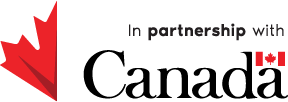Water, Sanitation and Hygiene
The Situation
It's easy to forget what a miracle water is. We drink it, we wash our hands and cook our food in it. Water is a key component of our life.
Yet access to clean water and safe sanitation - flushing toilets, or other forms of sewage treatment - is one of the biggest health issues around the world.
As part of our humanitarian response work, Oxfam is widely recognized as a leading organization helping people meet their needs for clean water, safe sanitation and hygiene advice (collectively known as WASH). For more than 15 years, Oxfam has been a leading member of the inter-agency WASH cluster, where we remain an influential leader and world authority on water in emergencies.
Water, sanitation, and hygiene underpin many of our poverty-fighting development projects.
DETAILS
LOCATION
Where needed most
DURATION
Varies between 1-3 years
OUR SUPPORTERS
We are grateful for the financial support of the Government of Canada, provided through Global Affairs Canada, and the generous Canadian public.

What are we doing?
Start the Flow
From personal water collection to large scale boreholes, we get the water flowing fast
Innovate
Innovations like biodegradable peepoo bags, tigerworm toilets, urine diverter toilets ensure sanitary conditions and dignity.
Inform
Provide health and hygiene advice to ensure water and sanitation facilities are used properly to help prevent spread of disease.
